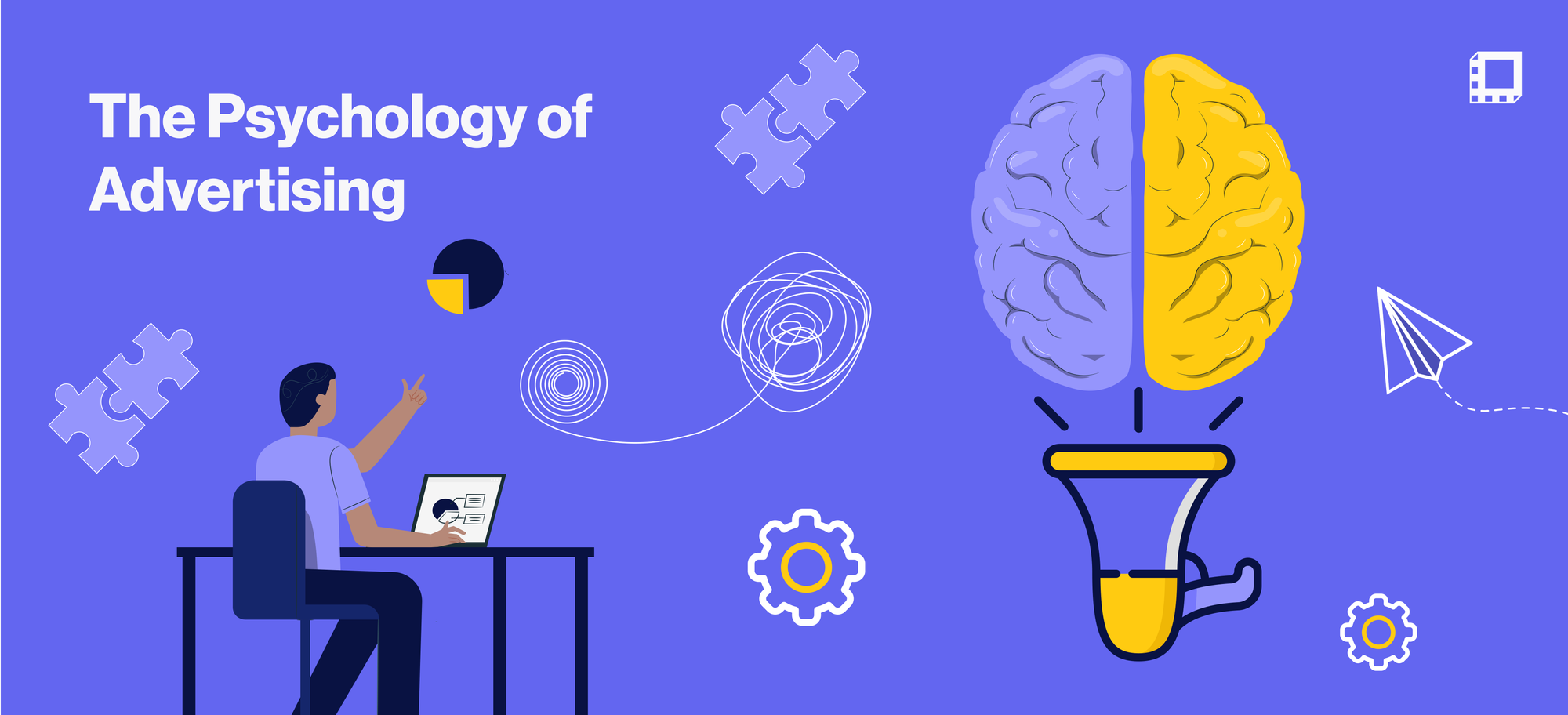Decoding the Psychology of Advertising: Understanding Consumer Behaviour

Mastering human psychology has always been a significant factor in influencing customer behavior in the advertising industry. The premise that individuals make more feelings-based decisions than logic-based ones is an essential principle of advertising psychology.
For this reason, advertisers employ psychological strategies to appeal to people's needs, wants, and emotions to help them relate to the advertised goods or services.
The advertising industry is constantly moving, requiring advertisers to find more personalized, effective advertisements that connect with their target audiences. The ability to understand and capitalize on this aspect of advertising has advanced dramatically.
Thus, it has never been more imperative for businesses to recognize the significance of consumer behavior in shaping ad effectiveness, the vital role of understanding consumer psychology in influencing consumer reactions to commercials, and the psychological ploys marketers employ to influence buying decisions.
Walter Dill Scott, John B. Watson, and Claude Hopkins were frontrunners in creating different psychological tactics to assist advertisers in connecting with their consumers, and this field of research has been present for over a century.
Let's explore the fascinating realm of consumer psychology and how emotions, perceptions, and cognitive biases influence the success of advertisements.
The Power of Emotions in Advertising
Emotions play a pivotal role in shaping consumer decisions and responses to adverts. Whether it's joy, fear, excitement, or nostalgia, emotions can evoke strong reactions and create lasting impressions. Effective adverts leverage emotional triggers to connect with viewers on a deeper level, resonating with their aspirations, desires, and pain points.
Understanding Perceptions and Branding
Consumers' perceptions of a brand can significantly influence their receptiveness to adverts. An impressive and consistent brand identity can build trust, credibility, and loyalty between businesses and consumers. Adverts that align with a brand's values, personality, and messaging are more likely to resonate with audiences and leave a lasting impression.
Cognitive Biases and Decision-Making
Cognitive biases are mental shortcuts or thinking patterns that influence how individuals perceive information and make decisions. Adverts that tap into cognitive biases, such as social proof, scarcity, or authority, can influence consumer behavior and drive action. By understanding these biases, advertisers can create persuasive adverts that nudge viewers towards desired actions.
Tips for Leveraging Consumer Psychology in Adverts
Now that we understand what consumer psychology is and the factors that contribute to it, let's consider some helpful tips you can implement in your advertising strategy that will positively influence your customers.
1. Emotional Storytelling: If it were possible to overstate the power of storytelling in advertising, we would. Using storytelling techniques to evoke emotions and create narratives that resonate with viewers is a sure ticket for a successful ad campaign. Highlighting human experiences, struggles, and triumphs can make adverts relatable and memorable. Instead of telling viewers about your product or service, show them how effective it can be with a relatable narrative.
2. Visual Cues and Symbols: To attract target customers, your adverts should incorporate visual cues and symbols that evoke specific emotions or associations. Appropriate colors, imagery, and design elements can also elicit subconscious responses and shape perceptions of a brand or product.
3. Social Proof and Testimonials: Showcasing social proof, such as customer reviews, testimonials, or endorsements from influencers or experts, is one of the potent methods of persuasion because people buy from those they trust. Social proof validates the credibility and value of a product or service, influencing customers' perceptions and decisions.
4. Scarcity and Urgency: Creating a sense of scarcity or urgency in adverts by highlighting limited-time offers, exclusive deals, or product availability appeals to consumers' fear of missing out (FOMO) and can drive immediate action.
5. Personalization: Tailoring adverts to individual preferences, interests, and behaviors using data-driven insights is a no-brainer when influencing customer decisions. Personalized adverts make your messages more relevant and engaging, which increases the chance of converting your audience to loyal customers.
Conclusion
In conclusion, understanding consumer psychology is essential for creating ads that capture attention, evoke emotions, and drive action. By understanding the complexities of human behavior, advertisers and business owners can craft ads that resonate with viewers, influence perceptions, and ultimately drive business success.
At Haards, we empower small-scale businesses to create adverts that resonate with their target audience and drive results. Our platform offers easy-to-set-up adverts with customizable templates, targeting options, and performance analytics. Whether your goal is to tap into consumer emotions, leverage cognitive biases, or build a strong brand identity, Haards provides the tools and support you need for effective advertising campaigns.
With Haards as your partner, you can harness the power of consumer psychology and create and upload adverts that target specific audiences and leave a lasting impact. Start your journey towards effective advertising with Haards today!
